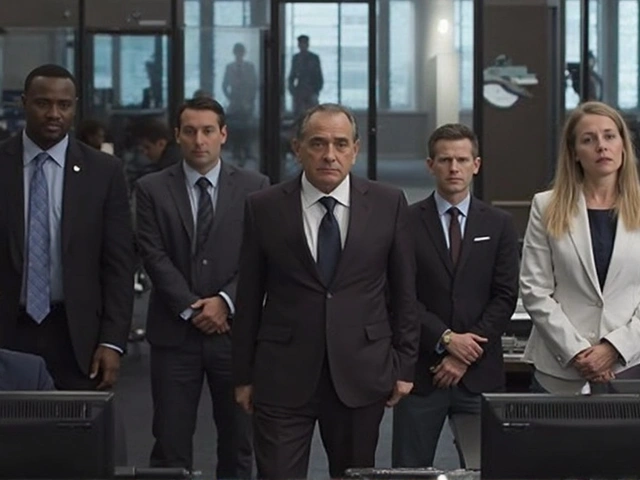
In a surprising turn of events at the Queen’s Club Championships, Carlos Alcaraz, ranked No. 2 in the world, was defeated by Jack Draper in the round of 16. This marked Alcaraz's first loss on grass since 2022, a significant upset for the young tennis star. However, the defeat was not the only source of frustration for Alcaraz. He openly criticized the new shot-clock rule being tested at the tournament, describing it as 'crazy' and detrimental to players' performance.
The controversial shot-clock rule automatically starts the 25-second countdown only three seconds after the previous point ends. This has left players, including Alcaraz, with limited time to regroup, strategize, and prepare for the next point. Alcaraz expressed that this rushed timeframe disrupted his usual pre-point routine, making it difficult for him to bounce the ball and maintain his focus. The result, he argued, was a feeling of being constantly hurried, which negatively affected his game.
Carlos Alcaraz's Frustration with the New Shot-Clock Rule
Alcaraz did not hold back in his criticism of the new rule. He pointed out that tennis is a sport that requires not only physical endurance but also mental preparation between points. The three-second window before the shot clock starts leaves little room for players to do the necessary mental reset. For Alcaraz, this was a significant factor in his defeat to Draper. He made it clear that adjusting to this rule was a challenge, and it took a toll on his overall performance during the match.
The Psychological Impact on Players
For many tennis players, the time between points is crucial for recovering both physically and mentally. It’s a brief moment to assess the previous point, consider strategy adjustments, and prepare oneself for the next serve or return. The new shot-clock rule disrupts this rhythm, creating added pressure on players to expedite their routines. Alcaraz's remarks reflect a broader concern within the tennis community about how such changes in the rules might affect players' mental states and game consistency.
Alcaraz's usual routine involves bouncing the ball a specific number of times before serving, a habit that's part of his mental preparation. The restricted time frame disrupted this process, impacting his confidence and concentration. The Spaniard mentioned that it was particularly difficult on the grass courts of Queen's, where each point can be more physically demanding due to the surface's unique characteristics. This added difficulty may have compounded his frustration with the new rule.

The Future of the Shot-Clock Rule
As the tennis world watches the evolution of the shot-clock rule, there are mixed opinions about its implementation. While some argue that it will speed up the game, making it more exciting for spectators, others, like Alcaraz, feel it compromises the quality of play. The rule is currently in a trial phase, and its future adoption will likely depend on feedback from players, officials, and fans.
Alcaraz's vocal disapproval highlights the need for a cautious approach to such changes. Tennis is a sport with deep traditions, and modifications to the rules can have far-reaching implications. The governing bodies will need to weigh the potential benefits of faster gameplay against the possible drawbacks for players' performance and mental health.
Looking Ahead to Wimbledon
Despite his defeat and frustrations at Queen's, Alcaraz remains focused on the future. He emphasized the importance of taking both positives and negatives from the match to improve his game. With Wimbledon on the horizon, Alcaraz is committed to intense practice sessions to better prepare for the prestigious tournament. He understands that each match, win or lose, offers valuable lessons and opportunities for growth.
The world No. 2's determination is evident as he continues to hone his skills and adapt to new challenges. His ability to analyze and learn from his experiences will be crucial in his journey toward success at Wimbledon and beyond. Alcaraz’s commitment to practicing at 100% reflects his unwavering dedication to the sport and his desire to excel on tennis’s biggest stages.

Players' Perspectives on Rule Changes
Alcaraz's criticism opens up a broader discussion on how rule changes impact athletes. While innovations in sports are often aimed at enhancing viewer experience and keeping the game dynamic, it's essential to consider the players' perspectives. As the ones directly affected by these changes, players should have a significant say in how new rules are implemented.
Many players have routines that are integral to their performance. Disrupting these routines can lead to a decrease in the quality of play and increase the likelihood of errors. Moreover, the mental strain of adapting to new rules can add to the stress of an already high-pressure environment. The debate around the shot-clock rule is a reminder of the delicate balance between tradition and innovation in sports.
A Call for Comprehensive Feedback
For any new rule to be successful, comprehensive feedback from the players is essential. The introduction of the shot-clock rule should be accompanied by systematic evaluations and open discussions with the players. Their insights and experiences can provide valuable guidance on how to fine-tune the rule for optimal effectiveness without compromising the integrity of the game.
Alcaraz's comments serve as a crucial reminder that the players' voices matter. Their firsthand experience on the court makes them the best judges of how new regulations affect gameplay. Ensuring their feedback is taken into account will be key to achieving a fair and balanced rule implementation.

Conclusion
Carlos Alcaraz's defeat at Queen's and his subsequent criticism of the 'crazy' shot-clock rule highlight the ongoing evolution of tennis rules and their impact on players. As the sport continues to adapt and change, it's vital to keep player welfare at the forefront of any new regulation. Alcaraz's experience underscores the importance of finding the right balance between speeding up the game and maintaining the quality of play that fans and players alike cherish.
With Wimbledon approaching, Alcaraz's focus shifts toward preparation and improvement. His resilience and commitment will undoubtedly be tested, but his ability to learn and adapt will be his greatest assets. As the debate over the shot-clock rule continues, the tennis community must strive for solutions that benefit both the players and the sport.
10 Comments
Write a comment
More Articles

DCI Launches Investigation into Alleged Acquisition of Pistol Used in Tom Mboya’s Assassination
The Directorate of Criminal Investigations (DCI) has opened an inquiry into claims that Ndwiga Kathamba, a 92-year-old man, purchased the pistol used in the 1969 assassination of Tom Mboya. Kathamba alleges involvement by KANU youth members in a plot to eliminate Mboya and details his role in acquiring the weapons from the black market. These claims have prompted the DCI to investigate further.

Brighton’s Late Comeback Stuns West Ham in 3-2 Premier League Thriller
Brighton turned a 2-1 deficit into a 3-2 win over West Ham at the American Express Stadium on April 26, 2025. Yasin Ayari opened the scoring, but Mohammed Kudus equalised early in the second half. Tomáš Souček seemed to seal the game with an 83rd‑minute header, yet Kaoru Mitoma and Carlos Baleba struck in the final minutes. The result lifts Brighton’s season momentum while West Ham faces mounting pressure on Graham Potter.

Critics and Audiences Split as Robert De Niro's 'Zero Day' Hits Small Screens
Netflix’s new series *Zero Day*, starring Robert De Niro in his first major TV role, faces mixed reviews. While De Niro’s presence is appreciated, the show receives backlash for its predictable plot and superficial take on political issues. Despite a high-profile cast, critics argue it falls short, comparing it unfavorably to classics like *The Manchurian Candidate*.
sunil kumar
June 21, 2024 AT 18:08When the tapestry of tennis is rewoven with the strands of mechanistic time‑keeping, we risk unraveling the very ethos that has sanctified the sport for centuries.
Alcaraz's lament is not merely a personal grievance; it is a resonant echo of a collective consciousness that cherishes ritual as a conduit for mental clarity.
The 25‑second shot‑clock, activated after merely three seconds, constitutes an ontological intrusion into the liminal space between point and point.
In that interstice, players calibrate their proprioceptive feedback loops, reconstitute their strategic frameworks, and engage in a subtle dialogue with their own psyches.
To truncate this dialogue is to impose a dictatorial tempo upon a nuanced ballet of anticipation and reaction.
One might argue that such acceleration aligns with the commercial imperatives of broadcast media, yet the cultural capital of tennis resides precisely in its measured cadence.
The historical lineage of pre‑serve routines, from the meticulous ball bounce to the contemplative breath, functions as a neuro‑cognitive primer, optimizing performance outcomes.
When this primer is compromised, the resultant decrement in shot precision and mental composure becomes almost inevitable.
Moreover, the grass courts of Queen’s, with their inherently volatile bounce, already demand a heightened sensory attunement; the shot‑clock merely compounds this destabilization.
From a systems‑theoretic perspective, the rule introduces a perturbation that reverberates through the athlete's feedback mechanisms, amplifying error propagation.
Critics of the rule may invoke statistical data on match duration, yet such macro‑level metrics obscure the micro‑level degradation of player agency.
The philosophical quandary thus emerges: do we prioritize spectator immediacy over the sanctity of athlete‑centered preparation?
Alcaraz's articulation of “crazy” is a valuable phenomenological datum, signaling a rupture between governing bodies and the embodied experiences of competitors.
In the grand dialectic of tradition versus innovation, the former must not be rendered mute by the latter’s relentless clamor.
Only through a dialogic, iterative refinement-where player feedback is integral-can the sport evolve without sacrificing its soul.